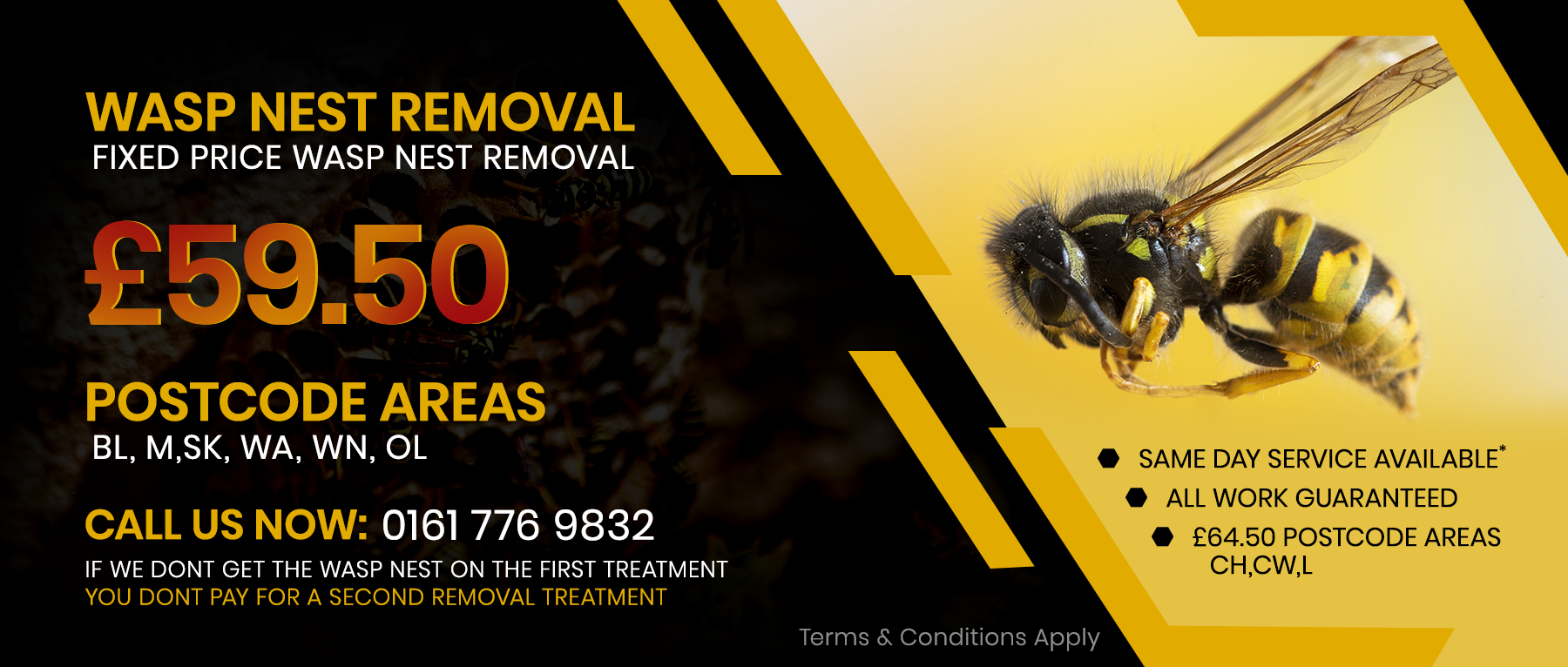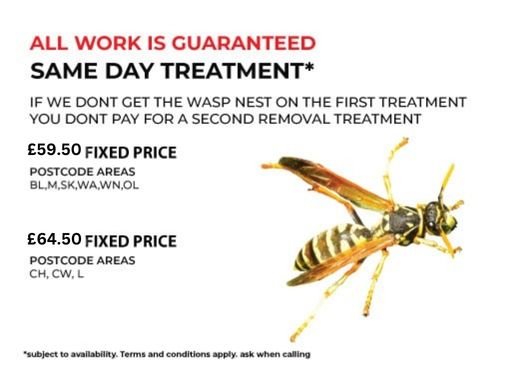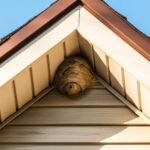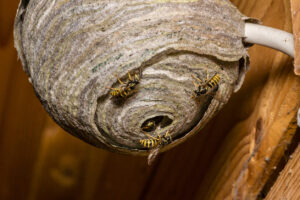

Need Help? Call Us On 0161 776 9832 For Expert Pest Control Advice On How To Identify Pest Infestations And Help Solve Your Pest Problem.
Blackrod Wasp Nest Removal
Hornet and wasp control are part of the 
How to deal with a wasp nest
The best advice is to leave the removal to an expert who will get rid of wasp nests professionally and without causing danger to the humans nearby. Hornet and wasp control experts will have the technical knowledge and access to powerful insecticides, which may only be available for professional use. In addition, as the wasp exterminator will have the appropriate protective equipment, he will be insulated from any potential stings. Likewise, public members should leave the process to get rid of wasp nests to those who are equipped and trained for the operation.
Where are wasp nests likely to be found?
There is a wide range of locations where a wasp colony may make its home. Commonly they will be found in roof spaces, lofts, air 
There will be just one queen who will live for up to a year. The rest of the colony will be 'worker' wasps and will have a 12-22 days lifespan.
Best time to remove a wasp nest?
It will be best if a wasp nest can be removed during the springtime, while it is small in size and its occupants are still in low numbers. The wasps will be less likely to be aggressive in this period. If a wasp is angry, it will produce a pheromone, which will reinforce the nest to assist. For this reason, it is best to leave dealing with the removal of nests to adequately equipped professionals.
How to identify hornets and wasps

It is important to note that hornets and wasps should not be confused with bees. Bees are generally benign to humans, if not provoked, and provide a helpful service by pollinating crops throughout the country. It is considered that bees pollinate around a third of agricultural products, giving the farmers a convenient and necessary service.
The removal process
The wasp nest removal costs will be 
To mitigate the effects of a wasp nest on a property, moving waste bins away from human areas and keeping their lids securely shut will remove a food source for any visiting wasps. In addition, fitting fly-screens to the windows will prevent flying insects from entering through windows that may need to be open during the year's warmer months.
BL6
